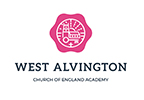


As communicators, our children will experience an English curriculum which is underpinned by oracy and language. Our children will build confidence as oral and written communicators who are fluent readers and are prepared for the next step in their education. The English curriculum will be language-rich, foster a love of our literary heritage, encourage children to take pleasure in books and acquire knowledge across the broader curriculum.
As writers, children will learn to craft texts for a variety of audiences and purposes and develop their authorial voice with an increasing knowledge of vocabulary and grammar which will equip them for the future.
Phonics and Early Reading
At West Alvington, we follow the validated scheme Read Write Inc which provides one clear route to reading. Phonics is taught discretely and daily with all staff following the scheme with fidelity. Our children learn to read and write effectively and quickly using the Read Write Inc. Phonics programme. We make sure that pupils read books that are closely matched to their increasing knowledge of phonics and the common exception words. This is so that, early on, they experience success and gain confidence that they are readers. Re-reading and discussing these books with the teacher supports their increasingly fluent decoding. Alongside their decodable reading book, children’s reading for pleasure is developed and encouraged by having high-quality books to share.
Reading
Once children have completed the Read Write Inc phonics programme, their reading fluency and comprehension is further developed through daily ‘Whole Class Reading’ lessons. All Whole Class Reading lessons are underpinned by high-quality fiction, non-fiction or poetic texts to provide a broad and balanced curriculum. We use DERIC (Decode, Explain, Retrieve, Infer and Choice) as a framework to enable children to meet the National Curriculum objectives and become successful readers.
To encourage children to take pleasure in reading, all classes have dedicated read aloud time where teachers share challenging texts with the class. In addition to this, every class has a book-rich reading environment for children to independently access. Once children have successfully completed their phonics programme, we have recommended reads for each year group to immerse children in high-quality texts to promote reading widely.
How we teach Writing
The long-term overview indicates the writing purposes that children in each year group will experience, enabling them to become confident authors. Each time a purpose is taught or revisited, children’s knowledge is deepened as they produce writing that is more sophisticated and cohesive, demonstrating their growing acquisition of what it means to be an author.
During a sequence of learning, children will create a main outcome that is an indicative example of the purpose e.g., a third person narrative when writing to entertain. At the beginning of each half term, children respond to an elicitation task, such as to write a letter to their local MP about a topical issue, to enable teachers to plan the sequence of learning. Following the elicitation task, children have daily opportunities to learn and apply the skills and knowledge from the relevant National Curriculum objectives during sentence stacking lessons. The chosen skills are taken directly from the National Curriculum and are taught iteratively across the year and within different purposes for writing.
Once children have been immersed in the purpose for writing, we apply aspects of Jane Considine’s approach towards teaching writing based on the book, ‘The Write Stuff’. A high-quality, rich text or other stimulus (such as a film) is used to structure children’s writing. The teaching sequence for writing consists of two elements: experience lessons and sentence stacking lessons. In an experience lesson, teachers design experiences which will generate and immerse children in the vocabulary required. A sentence stacking lesson is broken down into three learning chunks: the initiate stage, where the focus is vocabulary acquisition in preparation for writing, the modelling stage, where the class teacher models a skill at sentence level within a context and finally, the enable stage where children immediately apply the taught skill into a cohesive piece of writing. This dovetails and is underpinned by the Trust ‘How we teach’ pedagogical approach based on Rosenshine’s Principles of Instruction.
View our English Curriculum